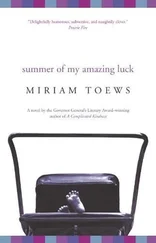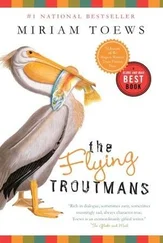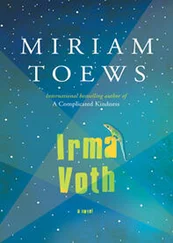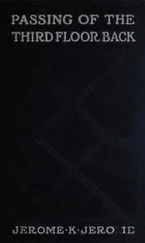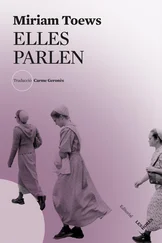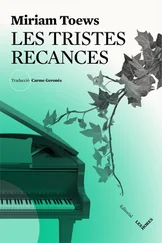They went inside. They split up to go to their respective sides of the church and listened as the elders, one by one, cast their votes. At the end of the evening, there were three fewer members of the church.
That’s all I know about that, my mom told me when I was a little kid. I don’t know what they’d done.
Jesus H., Tash said, your first date was a shunning? What did they do, I’d asked my mom. Oh, brother, I don’t know, she said. I never really paid any attention. But I pressed her. I was six or seven. What did they do, I asked. Just guess. Well, she said, they may have been fooling around, I don’t know. Fooling around how, I’d asked. Oh, she said, misbehaving. Kissing. Just fooling around. And then what happened, I’d asked. They couldn’t be a part of the church, she’d say. That’s right, Mom. And then? Their families weren’t allowed to speak to them, she said. And? I’d ask.
This was a bedtime ritual. I dug the shunning story. I couldn’t wait to hear it. What a gem. It completely reinforced my belief system of right and wrong. And everyone had to stand up in church and publicly denounce them. Yeah! I’d say. Denounce them! I’d always loved the sound of that.
And everybody was sad, I’d say. Right? Yes, everybody was sad. It was a very difficult position to be in not only for the person who was shunned but for the people who loved them. God especially, I’d say. Right? Yes, God especially. I loved that hook. Even though he was the ultimate punisher, he got no satisfaction from it. It hurt him, but it had to be done. I thought that was damn heroic.
But Nomi, she’d say, there was always the possibility of forgiveness. Remember that. I didn’t like that part. It muddied my crystal-clear waters. But probably not, I’d say. Probably not.
One night my mom said she’d had enough of that story. She didn’t like it any more and wanted to tell another one. And they lived like ghosts in their own town, right, I’d ask. No friends, no family. Floating around. Bound for hell, right? Crying all the time? Hey, Mom! For fooling around? Right? She’d make up excuses to leave my room. Oh, Dad needs help choosing his shirts for next week, she’d say. And gently close my door.
My mom had told me about the table trick. How if, say, your wife was shunned, you weren’t allowed to sit at the same table as her but if you put two tables together, with an inch between them, and then put a tablecloth over them, it would seem like you were at the same table, which would be nice, but you wouldn’t be at the same table, so you wouldn’t be breaking any rules.
Tash often threw me out of her room with the words I shun thee! She didn’t take things as seriously as she should have. Like my uncle, The Mouth of Darkness, said, there were eternal issues at stake. And when discipline is properly applied, the one under it needs the humility to come home.
My uncle’s name is Hans Rosenfeldt. He is the pastor of our church. He is my mother’s brother. Tash once said The Mouth of Darkness has pulled up onto our driveway. Shall I let him in? From then on she and I called him The Mouth, which, if not smart or funny or anything like that, is apt.
There is a woman in this town who was shunned for adultery but didn’t leave. She’s one of the ghosts. She has health problems and sometimes she just faints on the street, usually in front of Tomboy. People will leave sausages or cheese next to her sometimes but that’s as much as they can do. Although I did once see an older woman give her skirt a tug after it had ridden up above her knees.
My mother once told me that her blackouts had to do with stress, which fascinated me. That you could collapse on the spot and wake up a few minutes later feeling ready to go on. I wanted to be able to do that, although I think my minutes would stretch to days or possibly even years. My mother once told me that there were no adults in our town. But what do you mean by that, I’d asked her. What do I mean by that? she answered. I was never amused when my questions and her answers were the same thing. When she washed the dishes she’d have conversations with invisible people. I’d watch her from the dining room, shaking her head, moving her lips, shrugging, flicking her hand periodically to punctuate some imaginary point. Who are you talking to, I’d ask and she’d look at me and laugh, of course, telling me she didn’t know who she was talking to, or what did I mean, or talking? Was I talking? Yeah, I’d say, you were and you seemed ticked off. I did? she’d say, all innocently. That’s strange, she’d say. How odd. She’d try to compensate, afterwards, with an abundance of fake enthusiasm that literally felt like an attack. It stung my skin and I’d usually leave the room after enduring a few direct hits of good cheer . I wanted to know who the hell she was talking to in the first place.
You know how some people, I’m not sure which people, say that something that happens on one part of the planet can make something else happen on another part of the planet? Usually, I think, they mean some kind of geological event, but I’m sure that my mother’s silent raging against the simplisticness of this town and her church could produce avalanches, typhoons and earthquakes all over the world. But there is kindness here, a complicated kindness. You can see it sometimes in the eyes of people when they look at you and don’t know what to say. When they ask me how my dad is, for instance, and mean how am I managing without my mother. Even Mr. Quiring, the teacher I am disappointing on a regular basis, periodically gives me a break. Says he knows things must be a little difficult at home. Offers to give me extensions, says he’s praying for us. I don’t mind.
Main Street is as dead as ever. There’s a blinding white light at the water-tower end of it and Jesus standing in the centre of it in a pale blue robe with his arms out, palms up, like he’s saying how the hell would I know? I’m just a carpenter. He looks like George Harrison in his Eastern religion period working for Ringling Brothers. Whatever amateur made the sign put a red circle on each of his cheeks to make him look healthy, I guess, but healthily ridiculous. On the other end is another giant billboard that says SATAN IS REAL. CHOOSE NOW.
Main Street is bookended by two fields of dirt that never grow a crop. They lie in perpetual fallow, my dad told me. Those words haunt me still.
I can sense that Americans who come here think it’s strange. Main Streets should lead somewhere other than to eternal damnation. They should be connected to something earthly, like roads.
Americans come here to observe our simple ways. Here, life is so refreshingly uncomplicated. The tourists are encouraged to buy a bag of unbleached flour at the windmill and to wander the dirt lanes of the museum village that is set up on the edge of town, depicting the ways in which we used to live. It’s right next to the real town, this one, which is not really real. It’s a town that exists in the world based on the idea of it not existing in the world. It was created as a kind of no-frills bunker in which to live austerely, shun wrongdoers and kill some time, and joy, before the Rapture. The idea is that if we can successfully deny ourselves the pleasures of this world, we’ll be first in line to enjoy the pleasures of the next world, forever. But I’ve never really understood what those pleasures will be. Nobody’s ever come right out and told me. I guess we’ll be able to float around asking people to punch us in the stomach as hard as they can and not experience any pain, which could be fun for one afternoon.
I once had a conversation with my typing teacher about eternal life. He wanted me to define specifically what it was about the world that I wanted to experience. Smoking, drinking, writhing on a dance floor to the Rolling Stones? Not exactly, I told him, although I did think highly of Exile on Main Street. Then what, he kept asking me. Crime, drugs, promiscuity? No, I said, that wasn’t it either. I couldn’t put my finger on it. I ended up saying stupid stuff like I just want to be myself, I just want to do things without wondering if they’re a sin or not. I want to be free. I want to know what it’s like to be forgiven by another human being (I was stoned, obviously) and not have to wait around all my life anxiously wondering if I’m an okay person or not and having to die to find out. I wanted to experience goodness and humanity outside of any religious framework. I remember making finger quotations in the air when I said religious framework. God, I’m an asshole. I told him that if I heard one more person say it wasn’t up to him or her to judge, it was up to God, while, at the same time, they were judging their freakin’ heads off every minute of every day (I mean basically they had judged that the entire world was evil), I would put a sawed-off. 22 in my mouth and pull the trigger. I told him I didn’t know what the big deal was about eternal life anyway. It seemed creepy to want to live forever. And that’s when he threw me out. I’m not saying he was wrong or anything, I just couldn’t ever figure out what was going on. It seemed like we were in some kind of absurd avant-garde theatre, the way our conversations sometimes went.
Читать дальше

